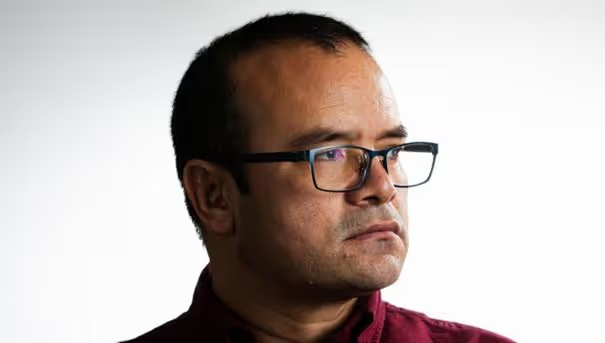Preserving Uyghur language and culture: Abduweli Ayup wins the Excellence in Community Linguistics Award

The Linguistic Society of America and the Committee for Endangered Languages and Their Preservation awarded linguist and writer Abduweli Ayup the Excellence in Community Linguistics Award for his efforts in preserving Uyghur language and culture.
Linguist and writer Abduweli Ayup, originally from Xinjiang, has dedicated his professional and personal life to advocating for and advancing the human, linguistic, and cultural rights of the Uyghur people. His work has focused on Uyghurs’ right to education in their mother tongue in the context of increasing persecution within China.
Ayup was awarded the Excellence in Community Linguistics Award ‘for his invaluable work and contributions to the Uyghur community’ and ‘or developing Uyghur language teaching materials in a continuous effort to maintain the intergenerational transmission of Uyghur language and culture’. You can read the official statement here.
Alongside his scholarly and literary work, Abduweli Ayup has been involved in the operation of schools teaching Uyghur language and culture in China and beyond. While still living and working in East Turkestan, Ayup was detained in a ‘re-education’ camp where he spent one year for his work in setting up schools and kindergartens for Uyghur children. In 2015, he fled to Turkey, and in 2019, Ayup arrived in Bergen where he took up a two-year ICORN residency. Abduweli has continued his work from exile which has involved working with the Norwegian Uyghur Committee which runs weekend classes for Uyghur children in Bergen.
We spoke to Abduweli Ayup about his work at home and from exile, the Excellence in Community Linguistics Award, and his future professional plans.
ICORN: How did you decide that working to preserve and defend Uyghur language, culture, and rights is what you wanted to do?
Abduweli Ayup: I studied linguistics at the University of Kansas. During that time, I participated in a conference about language documentation. After the conference, I learned that Uyghur was selected to be the language that should be documented as an endangered language. This was in Ugene, Oregon University in 2010. As a Uyghur speaker, I was followed as one of the last speakers of that language, and there were 7 scholars and students describing the Uyghur language. Then I took my daughter with me to the United States. She lost her mother language in a half year; it reminds me how languages die. I started to think, to study, to read, how to protect my language.
ICORN: What have some of your efforts in preserving, defending, and promoting the Uyghur language and culture been in exile?
Abduweli Ayup: I have started to promote the Uyghur language through encouraging Uyghurs to open mother language schools, summer camps, and online Uyghur courses. Now, we have about 30 schools running in the diaspora. I am also writing textbooks. I have published nine textbooks for kids. I also give visiting lectures to those Uyghur language schools in North America and Europe and instruct teachers. I held a spring camp in Berlin last year, and I am planning to hold a summer camp in Istanbul this year. We are planning to organise a 15-day event in Istanbul.
ICORN: How does working from exile compare to working in China in your capacity as linguist and activist?
Abduweli Ayup: It is totally different if I mention my feelings. You are free to teach, you are free to learn, but there are no students, parents, and books. You need to be the teacher, writer, and organiser. It is not easy to be three different people at the same time. It is really difficult to convince kids to learn their language, there are not enough books to let them read after class, and it is not easy to encourage parents to send their kids to Uyghur schools.
ICORN: What projects are you working on now and what do you hope to achieve with them?
Abduweli Ayup: I am working on three different projects, one is a summer camp in Istanbul, another one is a series of bedtime stories for Uyghur kids, and the third one is observing Uyghur schools and evaluating them and at the end organising a symposium in June in Washington.
You can keep up-to-date with Abduweli Ayup’s work on his Facebook and X (Twitter) accounts.



